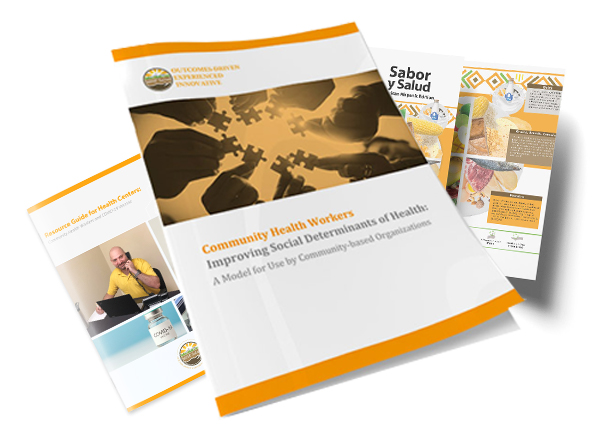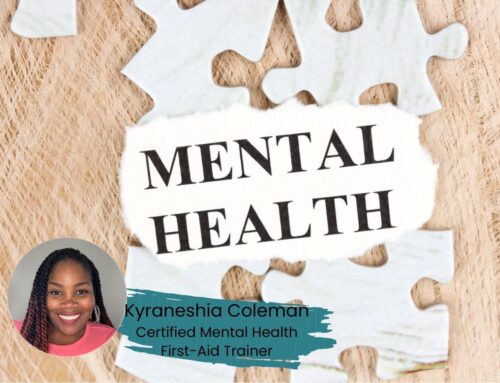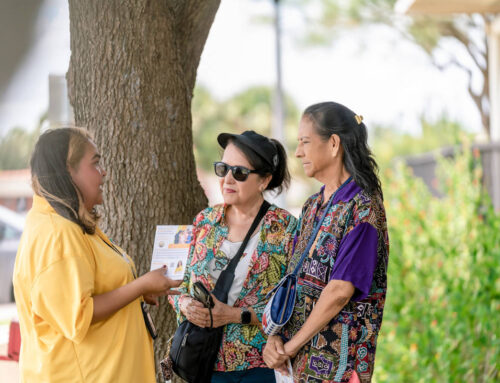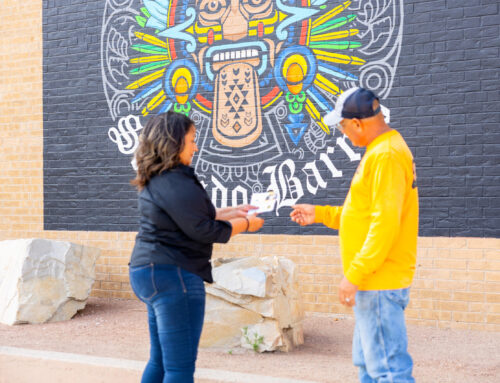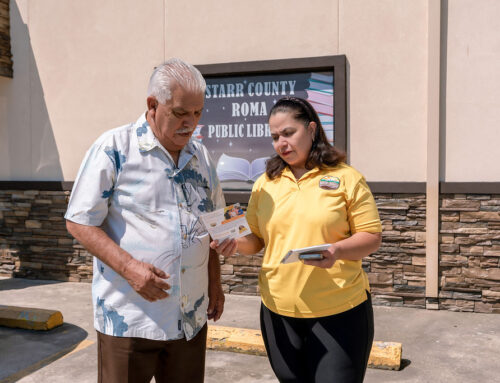How Caring for an Older Adult Loved One Can Have Financial Consequences for Hispanic/Latino Caregivers
Published April 2022 | Read this article in Spanish | Back to all news and updates.
In Hispanic/Latino culture, it is common to put family needs above an individual’s needs. This cultural norm is often referred to as familismo, or familism, and influences how caregivers provide care for their older adult loved ones. As we heard from our MHP Salud staff who care for their older adult parents, many Hispanic/Latinos feel a sense of purpose or duty when caring for their loved ones. It is an expectation and privilege, but with that come unique challenges, some of which have financial consequences for caregivers.
Hispanic/Latino caregivers often do not seek support for their caregiving responsibilities, taking on high-intensity caregiver situations.
Because of the cultural influences around caring for family members, there is often a sense of guilt felt among Hispanic/Latino caregivers of older adults for seeking any kind of assistance with their caregiving duties, or in other words, seeking respite. There is a sense of guilt associated with having someone else provide the care they feel they should be providing. Often they feel they are the best for the job and worry that the aide is unable to provide the best care or will forget something. Many Hispanic/Latino older adults prefer to age in place or to stay in their home as long as possible. Therefore, there is also a lot of pressure on caregivers to stray away from seeking Long Term Support Services and/or any Assisted Living or other housing options for their older adult loved ones.
According to an AARP 2020 report, 49% of Hispanic/Latino caregivers experience higher caregiver burdens than whites (35%). They are more likely to help their loved ones with nursing/medical tasks (67% for Hispanic/Latinos vs 52% of whites) and spend more time a week on caregiving than their white counterparts (26 hours for Hispanic/Latinos as compared to 21 hours for whites).
Seventy-one percent (71%) of Hispanic/Latino caregivers are helping with at least one Activity of Daily Living, such as getting in and out of bed/chairs, getting to and from the toilet, showering, feeding, or being unable to control their bladder as compared to 55% of whites.
Hispanic/Latino older adults also experience health disparities. They experience higher rates of chronic conditions such as diabetes and chronic kidney disease. Hispanic/Latinos are also 1.5 times more likely to develop Alzheimer’s Disease than whites. Therefore, their caregivers are often also responsible for coordinating care.
Missed educational and career advancement opportunities.
Preference for family caregiving leaves caregivers taking on these high-intensity caregiving situations, often leading to missed work and, therefore, missed wages. Unfortunately, many (55%) caregivers of older adult loved ones in the Hispanic/Latino community are often working in industries with lower-wage and hourly positions that do not offer benefits, such as paid family leave or sick time, to allow them to care for their loved one without worrying about lost income as a result.
Caregiving responsibilities also often leads to missed career advancement opportunities such as the ability to go to or finish college or accept a promotion at work with more responsibility.
Lastly, women are often the preferred caretaker of their older adult loved ones in the Hispanic/Latino community. Women are also more likely to have lower incomes and be sandwiched between caring for young children and older adult loved ones, which increases their caregiving load and reduces their financial opportunities.
Higher out-of-pocket spending on caregiving needs.
The typical annual total of unpaid care for an older adult loved one in Hispanic/Latino households was $7,164. This is even greater among women caregivers and Hispanic/Latinos who had a median household income of $55,321 in 2020. According to the National Hispanic Council on Aging, the median household income for caregivers was even lower than this at $38,600. We also see many Hispanic/Latino older adults not using services such as hospice, which often covers many costs associated with end of life care. According to an Alzheimer’s Association Report, Hispanic/Latinos are spending much less on hospice care ($1,964) compared to whites ($3,563). When these services are underutilized, we see many caregivers spending more time and more money on caregiving duties for their older adult loved ones at the end of their life.
Within the Hispanic/Latino community there is also a fear of accessing some public benefits for which they are eligible. This is due to public charge rule, which although it is no longer in effect, would have prevented individuals from being eligible to apply for permanent residency or citizenship in the United States should they utilize certain public benefits. Among Hispanic/Latino immigrant households who often have mixed immigration statuses under one roof, public services that can provide financial relief from caregiving may be underutilized.
Do not identify as caregivers.
Because it’s seen as an expectation among Hispanic/Latinos to care for older adult loved ones, many don’t even consider themselves caregivers. They do not know where to turn for guidance, relief, and support for caregiving activities. Reports indicate that many Hispanic/Latino caregivers (26%) report having no source for help or information much more than any other racial/ethnic group.
The fact that many Hispanic/Latino caregivers do not seek respite care or other support can lead to decline in both mental and physical health (depression, increased feelings of social isolation, etc.), all of which can influence one’s ability to work and overall financial situation.
COVID-19 exacerbated all of these issues.
Overall, Hispanics/Latinos experienced widespread financial challenges due to the COVID-19 pandemic.
Throughout the COVID-19 pandemic we have seen stay-at-home orders lead to massive layoffs in the service industries, where many Hispanic/Latinos work. Many Hispanic/Latino caregivers were left without income but still experienced caregiving responsibilities, which made every day a struggle.
Those who were still working often were considered “essential workers” or were working in industries that were providing essential services such as supermarkets, frontline health work, etc. and were putting themselves and those they care for at risk of getting COVID-19 and becoming severely ill. We saw the Hispanic/Latino community disproportionately affected by the negative health consequences of COVID-19.
How can we support Hispanic/Latino caregivers?
Thankfully a lot of attention has been brought to the struggle that caregivers face within the last few years. The RAISE Family Caregiver Act is developing a national family caregiving strategy to identify actions that can be taken to recognize and support caregivers.
At an organizational and individual level, we can help raise awareness among Hispanic/Latino caregivers to help them recognize themselves as caregivers through outreach and education:
- Develop materials in both English and Spanish at an appropriate reading level with simplified text.
- Promote a diverse workforce within your organization that is reflective of the community served.
- Provide culturally and linguistically appropriate information and resources through Community Health Workers (CHWs) that can help to identify and provide services to Hispanic/Latino caregivers.
CHWs are trusted members of their community who empower their peers through education and connections to health and social resources. CHW services can include those that support caregivers such as linking them to health and social services available for caregivers in their communities. CHWs can also assist them in completing applications for public benefits and/or financial assistance they are eligible for.
Hispanic/Latino caregivers experience unique barriers when it comes to financial stability. Because CHWs are from the communities they serve, they have a deep understanding of these cultural norms and the financial strains caregivers face.
MHP Salud offers resources to older adults and their caregivers including La Salud, our biannual newsletter available in English and Spanish that focuses on aging issues that affect Hispanic communities and resources that can provide support. Click here to download this FREE resource!
This project was supported by the Administration for Community Living (ACL), U.S. Department of Health and Human Services (HHS) as part of a financial assistance award totaling $255,124.00 with 75 percentage funded by ACL/HHS and $85,949.42 amount and 25 percentage funded by non-governmental source(s). The contents are those of the author(s) and do not necessarily represent the official views of, nor are an endorsement, by ACL/HHS, or the U.S. Government.
Blog Topics
This resource was developed by MHP Salud with essential guidance and understanding about ADRD provided by Alzheimer’s Association – San Antonio and South Texas Chapter.
